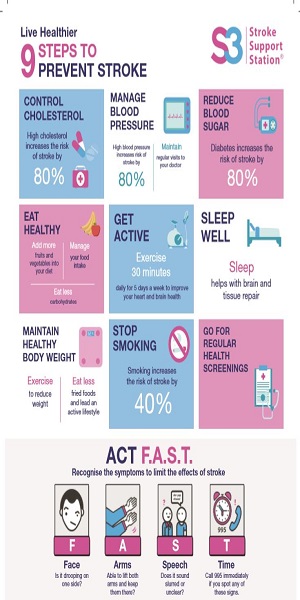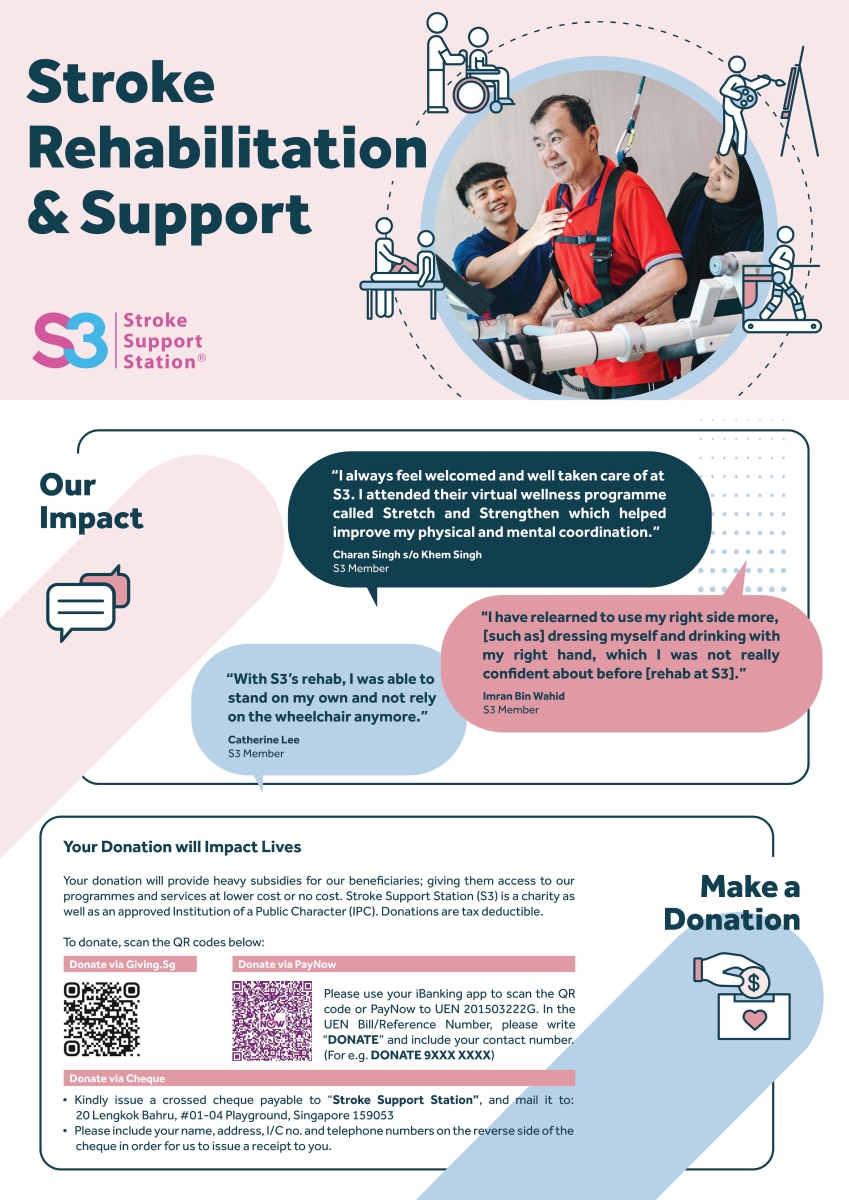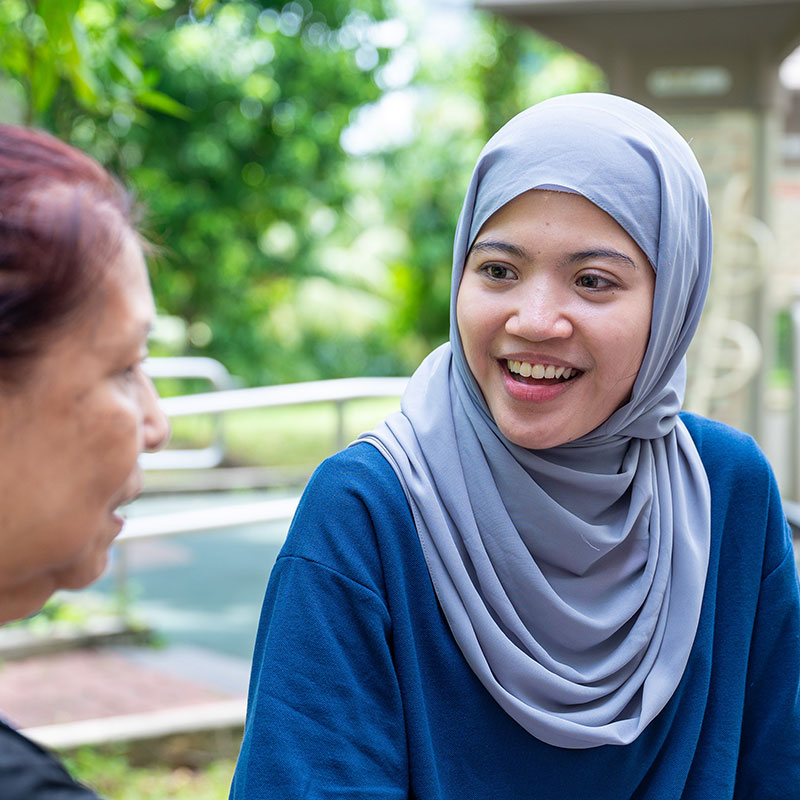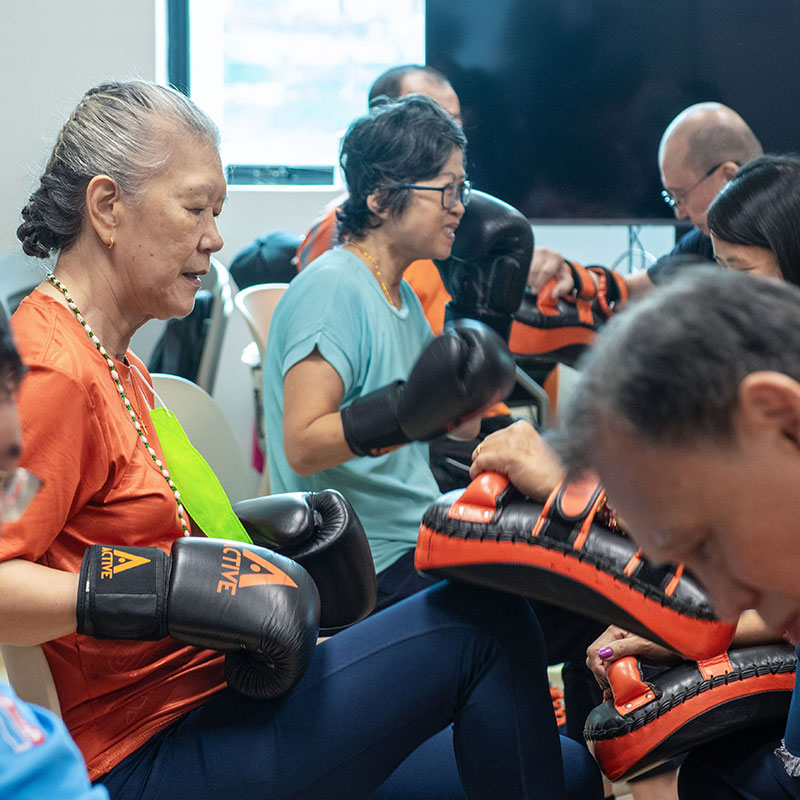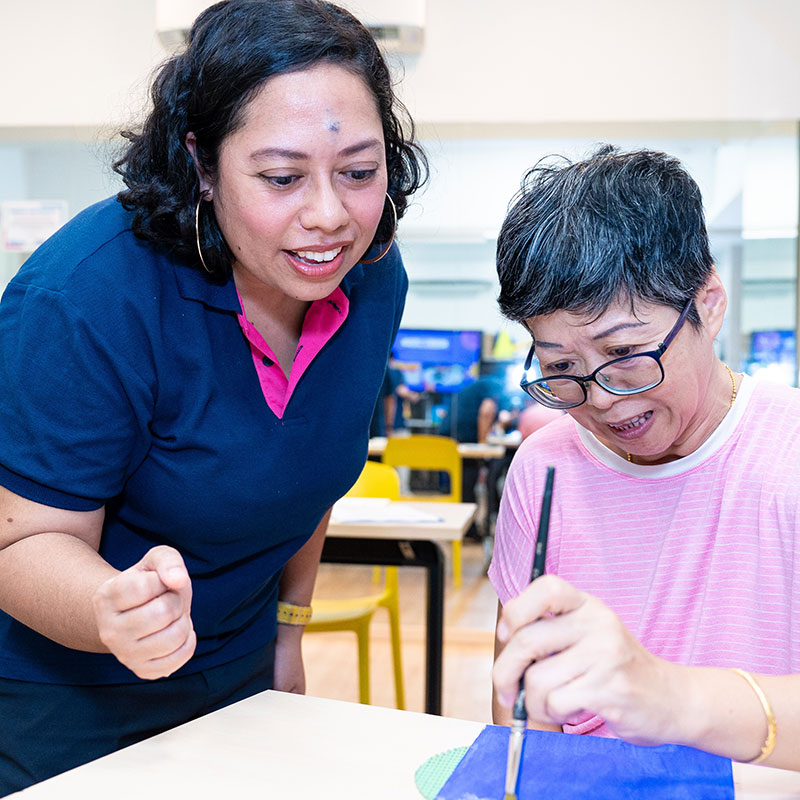Our Stories

“Was she able to cope with my stroke? How is she going to look after me? Can she understand my condition?”
These were the questions that plagued Kat* when she suffered a stroke in 2019. Kat was in her 40s and her daughter was just 14 years old then. Kat was constantly worried about how her stroke might affect her daughter.
“Why did I suffer from a stroke?” Kat asked herself. After all, she had a healthy diet and exercised regularly. Her doctor told her that her stressful lifestyle and a lack of sleep might have caused her stroke. Kat had a very busy schedule, having to start the day early by making breakfast for her school going daughter before going to work. After she returned home, she had to cook and complete household chores. By the time she could get some rest, it was already midnight.
How did Kat’s stroke happen?
“My daughter saw me lying on a pool of vomit. She was dazed beyond belief and did not know what to do.”
It was in the wee hours of the morning when Kat woke up with a headache. She thought that it was just a migraine. Kat returned to rest and when she woke up again, she collapsed on the floor and vomited.
That day, Kat was supposed to meet with her friends for breakfast and church service. They became concerned when she did not turn up. Thereafter, they received news from Kat’s daughter about her condition. Kat did not want to visit the doctor and insisted that she would be fine.
Kat’s friends sensed that something was wrong and called an ambulance for her. When Kat was admitted into the hospital, she fell unconscious.
How did suffering a stroke change Kat’s life?
Kat’s left hand weakened considerably, and she could not execute many motions such as raising up her hand, opening a can or grabbing an object.
Simple tasks such as hanging the clothes and holding a cup became very difficult. Before Kat suffered a stroke, she loved to cook and play squash. She could not do both after her ordeal.
Kat used to be very active and independent. She even babysat her nephews during the weekends. Nowadays, she needs to adapt to a slower pace of life and relies on a push chair for her mobility.
However, it is not always doom and gloom.
“I started to pay attention to my health and became more patient with myself and others.” Kat reflected on how her stroke has given her a new perspective on life.
“Stroke recovery takes a long time and a lot of hard work. However, after attending rehabilitation in S3, I can feel that my affected left hand is regaining more strength. I can lift my left hand independently and place it on the table without assistance.” Kat said.
Keep it up Kat! We are happy for you!

A mother's love for her daughter
Kat was worried about her daughter’s school and tuition fees as she could not work after her stroke.
Her daughter’s emotional well-being also concerned her. Was she able to cope with my stroke? How is she going to look after me? Can she understand my condition? These questions were always in the back of Kat’s mind.
Kat feels happy that her daughter can manage on her own gradually. Her daughter is able to voice out anything that is bothering her.
Thankfully, Kat has a wonderful and supportive family.
Once Kat was discharged, her siblings invited her to live with them as they felt that they could provide her with more care. Her mother also prepared meals for her. Once her condition improved, she decided to return to her own home with her daughter.
Initially, her siblings opposed her decision as she could not walk steadily yet. However, she believed that leading an independent lifestyle is important to her. Her family also constantly reminds her to be careful and to watch her steps to prevent falls.
.jpg)
How did Kat cope with her stroke?
Kat is part of her church’s care group and often attends church services with her friends. Attending church services helps her to gain spiritual happiness and a peace of mind.
As Kat cannot participate in sports, she listens to various music genres such as RnB, Chinese and Cantonese pop songs to relax.
What would you like to say to other stroke survivors?
“You have to accept your condition and the most important thing is to look and move forward. The future is more important, and we can always do better. It is no use thinking too much about the past. Having a strong fighting spirit helps you to recover. Personally, I hope to get well soon and repay my family’s kindness to me.” Kat said, with a shining will in her heart.
To all mothers, your sacrifices inspire us. This Mother's Day, we would like to dedicate our love to you.
*Not her real name
Downloads

